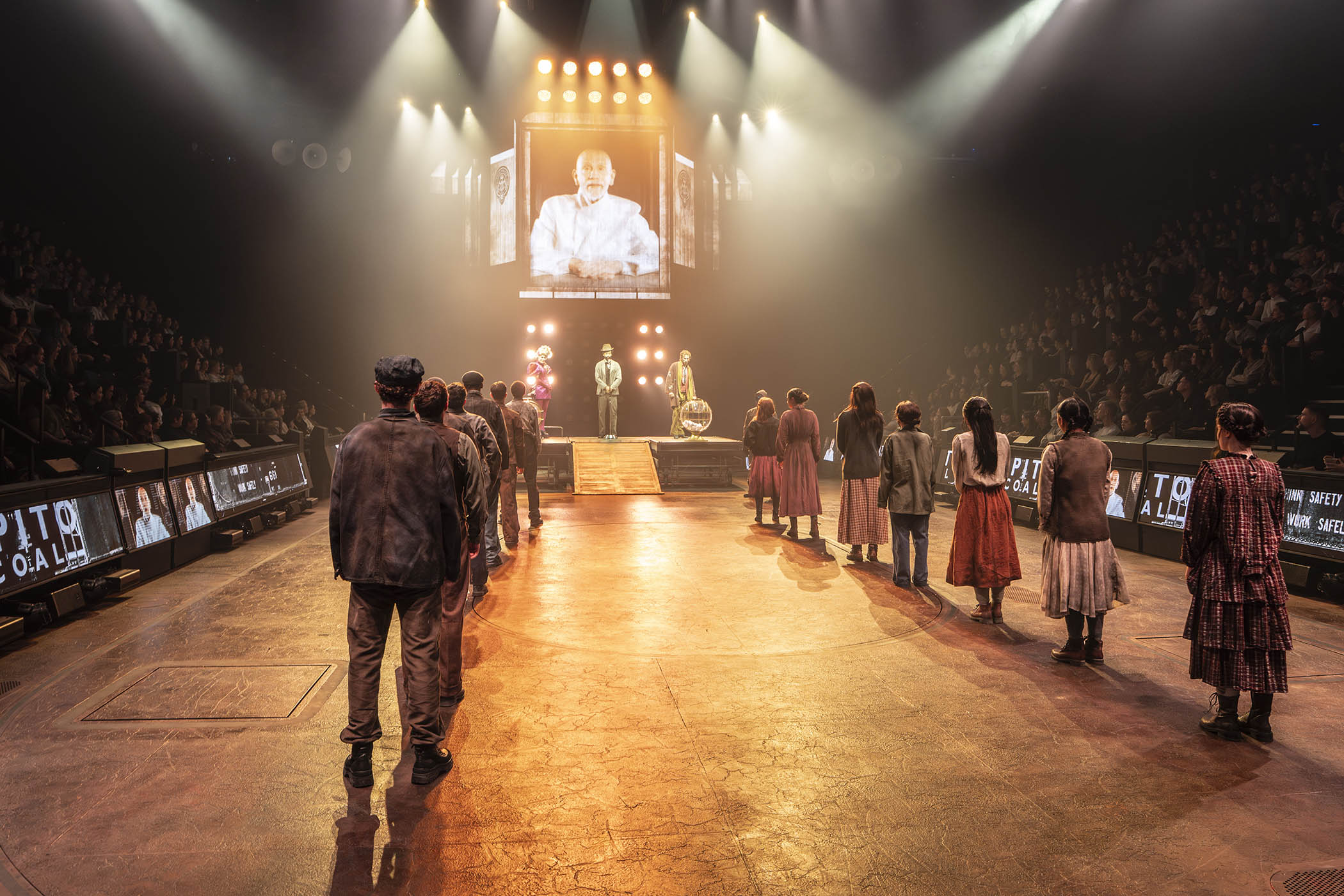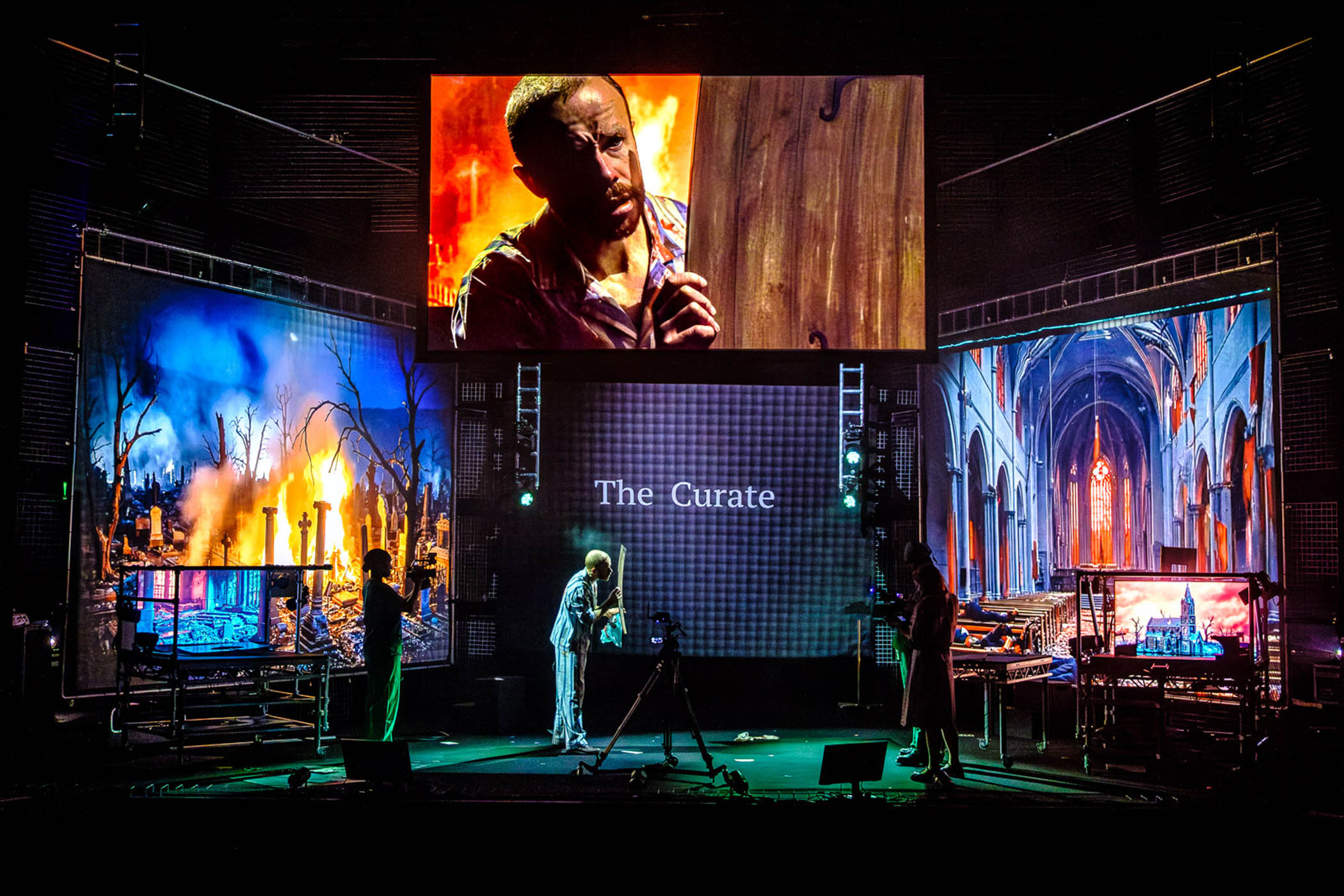The Hunger Games starts on the fast train east towards the crystal towers of Canary Wharf. Like the Capitol of Suzanne Collins’s world-famous dystopia, here is a centre of greed and concentrated wealth, now home to a bespoke £26m theatre, built to house the stage adaptation of her novel for its year-long run. Audiences enter not an auditorium but a stadium: 1,200 in-the-round seats, screens, LED lights, anticipation. But this is an arena of spectacle, not soul; of sensation but not emotion.
“I volunteer as tribute” were the words that sparked the phenomenon: a teenage heroine asserting agency in a world that deprives her of any. In Collins’s Panem – an authoritarian North America – children are drafted as “tributes” in a televised battle to the death in the vein of Lord of the Flies, Battle Royale and Stephen King’s The Running Man, designed to intimidate and oppress the poor and entertain the rich.
Katniss Everdeen, who lives in the impoverished District 12, is a hunter by necessity; now she must hunt humans instead of squirrels to save her younger sister from being enlisted in the Hunger Games. President Snow (a pre-recorded John Malkovich phones it in on screen) sits in the Capitol surveying his Roman empire: we marvel at literal chariots of fire as they fly overhead. But here, the sinister bloodlust of the novel is sanitised, the rumble of civil unrest disregarded. The weight of the allegory is too buoyed by all the stunts and excitement, the metatheatrical potential of the adaptation wasted: are theatregoers supposed to feel consciously complicit while encouraged to enjoy a pre-show meal in a swanky restaurant overlooking the stage?
What is also lost is the trust Collins puts in her reader. Olivier award-winner Conor McPherson’s script is well paced, but along with neat and campy live music interludes come Katniss’s intrusive, state-the-obvious, first-person present narration (“I run”), delivered in an unnaturalistic singsong voice by Mia Carragher (yes, daughter of that Carragher, inset), more Disney warrior than steely survivalist. She is agile and physically committed, but lacks the raw, brooding world-weariness through which Jennifer Lawrence wholly seized the character in the film, transforming her into the girl who can believe her bad luck. Carragher’s co-stars are imitations of their screen counterparts; convincing enough, but not the near-match of the replica costumes they wear.

Complicity encouraged: a pre-recorded John Malkovich, as President Snow, phones it in on screen
This is, however, a technically impressive production – rigged up to the rafters, full of flying, fire and expert combat scenes and choreography. It has a slick, studio feel, even if it does not live up to the movie. Director Matthew Dunster exploits the power of the ensemble: the cast is a tight troupe charging in and out of traps and around ever-changing, high-spec set pieces; I was more invested in which interior would pop up than which innocent child would next drop dead.
Praise, then, to Miriam Buether, to the sound and lighting designers and stage manager given the task of fabricating the simulation: perhaps The Hunger Games has more in common with Abba Voyage than a West End play. For this is theatre as experience over heartfelt drama or storytelling, with the fans and the brand – from the costumed theatre attendants to the merch stand – at the heart of everything. A tribute act to the tribute in the ring.
The Hunger Games is at Troubadour Canary Wharf theatre, London, until October 2026
Photographs by Johan Persson
Newsletters
Choose the newsletters you want to receive
View more
For information about how The Observer protects your data, read our Privacy Policy



